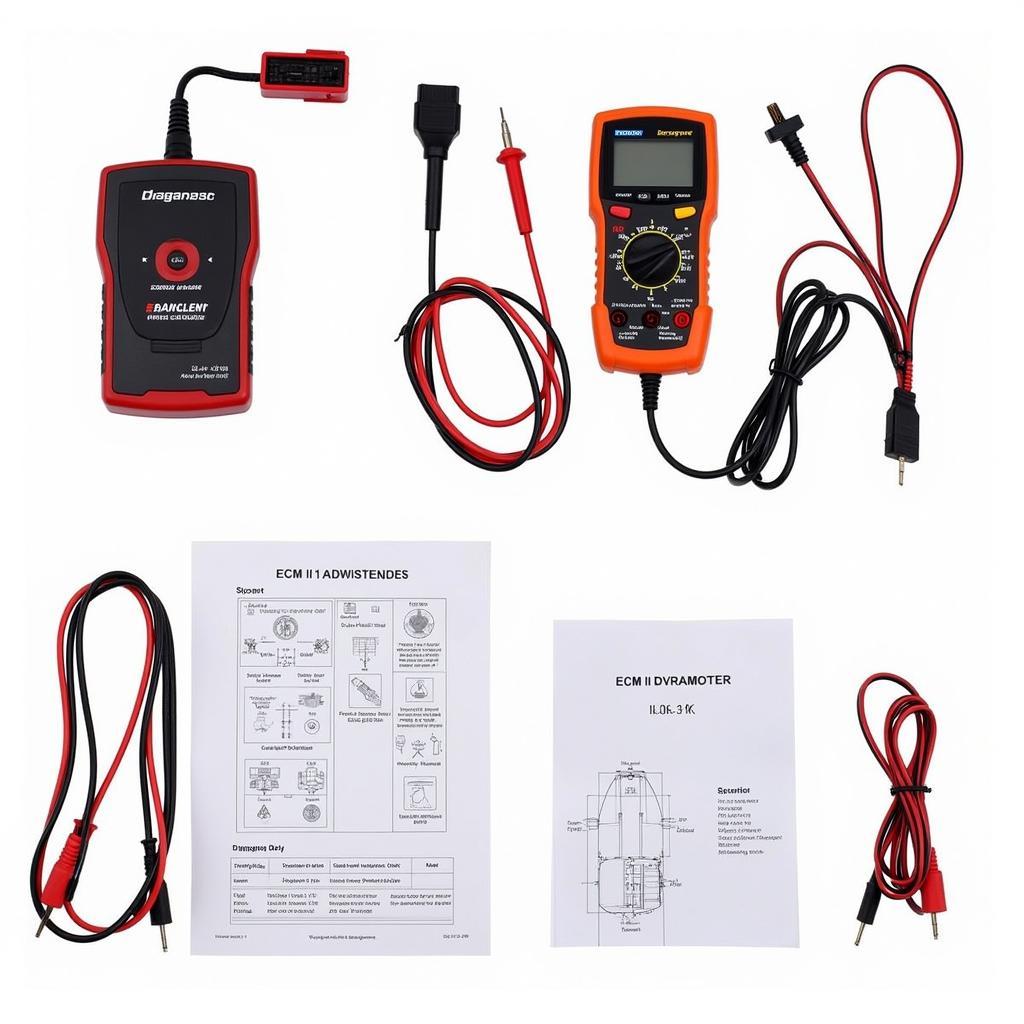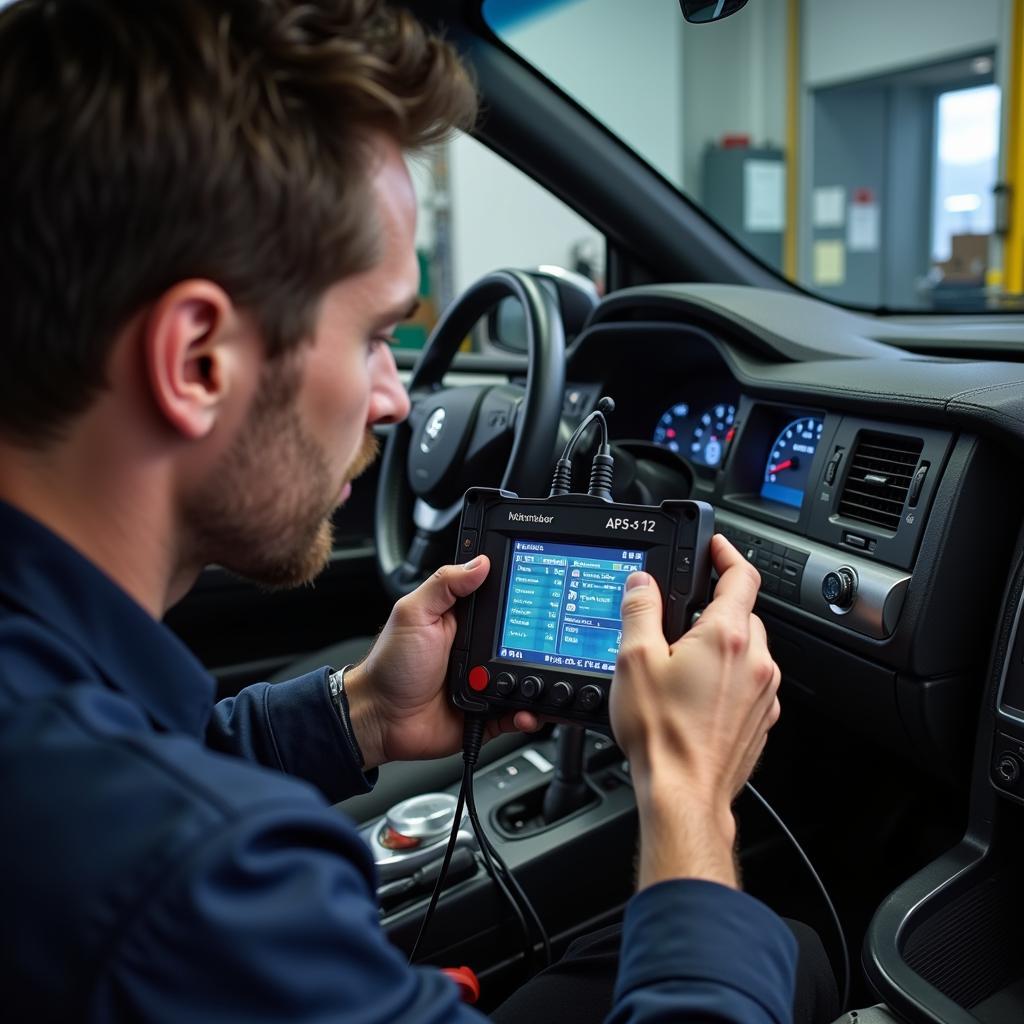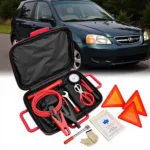Repairing a car’s Engine Control Module (ECM), also known as the Powertrain Control Module (PCM) or Electronic Control Unit (ECU), can be a complex process. This guide will delve into the intricacies of ECM repair, covering everything from diagnostics to potential solutions, empowering you to make informed decisions about your vehicle’s electronic heart.
Understanding the ECM and Its Importance
The ECM is the brain of your car’s engine management system. It’s responsible for controlling various vital functions, including fuel injection, ignition timing, emissions control, and transmission shifting. A malfunctioning ECM can lead to a range of problems, from reduced fuel efficiency and poor performance to complete engine failure. Therefore, understanding how to diagnose and address ECM issues is crucial for maintaining your vehicle’s health and reliability.
Diagnosing ECM Problems
Before jumping to conclusions about a faulty ECM, it’s important to rule out other potential culprits. Many symptoms associated with a bad ECM can also be caused by simpler issues like faulty sensors, wiring problems, or even a loose gas cap. Start by checking for trouble codes using an OBD-II scanner. These codes can provide valuable insights into the nature of the problem and point you in the right direction. Inspecting the wiring harness for damage, corrosion, or loose connections is also a crucial step.
 ECM Diagnostic Tools
ECM Diagnostic Tools
DIY ECM Repair Options
While some ECM issues require professional intervention, there are a few things you can try yourself. Sometimes, simply resetting the ECM by disconnecting the battery for a few minutes can resolve minor software glitches. If you suspect a corroded connector, cleaning it with electrical contact cleaner can also help. However, be cautious when working with the ECM, as improper handling can cause further damage. If you’re unsure about any step, it’s always best to consult a qualified mechanic.
When to Seek Professional Help
If basic troubleshooting doesn’t resolve the issue, or if you encounter more complex problems like internal component failure, it’s time to seek professional help. A qualified auto technician has the expertise and specialized equipment to diagnose and repair ECM issues effectively. They can perform advanced diagnostics, reprogram the ECM, or replace it entirely if necessary.
 Professional ECM Repair
Professional ECM Repair
ECM Replacement and Reprogramming
In some cases, the ECM may be beyond repair and require replacement. This typically involves sourcing a compatible ECM, either new or used, and then programming it to match your vehicle’s specific configuration. This programming process is crucial for ensuring proper communication between the ECM and other systems in the car.
Preventing ECM Problems
Preventing ECM issues is often easier and less expensive than repairing them. Regularly checking your car’s electrical system, keeping the battery terminals clean, and addressing any wiring issues promptly can help prevent ECM damage. Protecting the ECM from excessive heat and moisture can also prolong its lifespan.
How Much Does ECM Repair Cost?
The cost of ECM repair can vary significantly depending on the make and model of your car, the nature of the problem, and the labor rates in your area. A simple repair like cleaning a connector might cost a few dollars, while a full ECM replacement and programming can run into hundreds or even thousands of dollars.
Conclusion
Understanding how to repair the ECM of your car requires a blend of diagnostic skills, technical knowledge, and a cautious approach. While some issues can be addressed with DIY solutions, others demand the expertise of a professional. By following the guidelines outlined in this guide, you can make informed decisions about your car’s ECM and ensure its optimal performance and longevity. Remember, a healthy ECM translates to a healthy and reliable vehicle.
FAQs
- What are the common symptoms of a bad ECM?
- Can a bad ECM cause my car to stall?
- How long does an ECM typically last?
- Can I drive my car with a bad ECM?
- How can I prevent ECM problems?
- What is the difference between an ECM and a PCM?
- Where is the ECM located in my car?
Common Scenarios and Questions:
- Car won’t start: A faulty ECM can prevent the engine from starting by disrupting the fuel injection or ignition systems.
- Check engine light is on: While a check engine light can be triggered by various issues, a malfunctioning ECM is a potential cause.
- Poor fuel economy: A damaged ECM can lead to inefficient fuel consumption.
Further Reading:
- Check out our article on “Understanding Car Diagnostic Trouble Codes.”
- Learn more about “Common Car Electrical Problems and Solutions.”
Need help with your car’s ECM? Contact us via WhatsApp: +1(641)206-8880, Email: [email protected]. Our 24/7 customer support team is ready to assist you.

